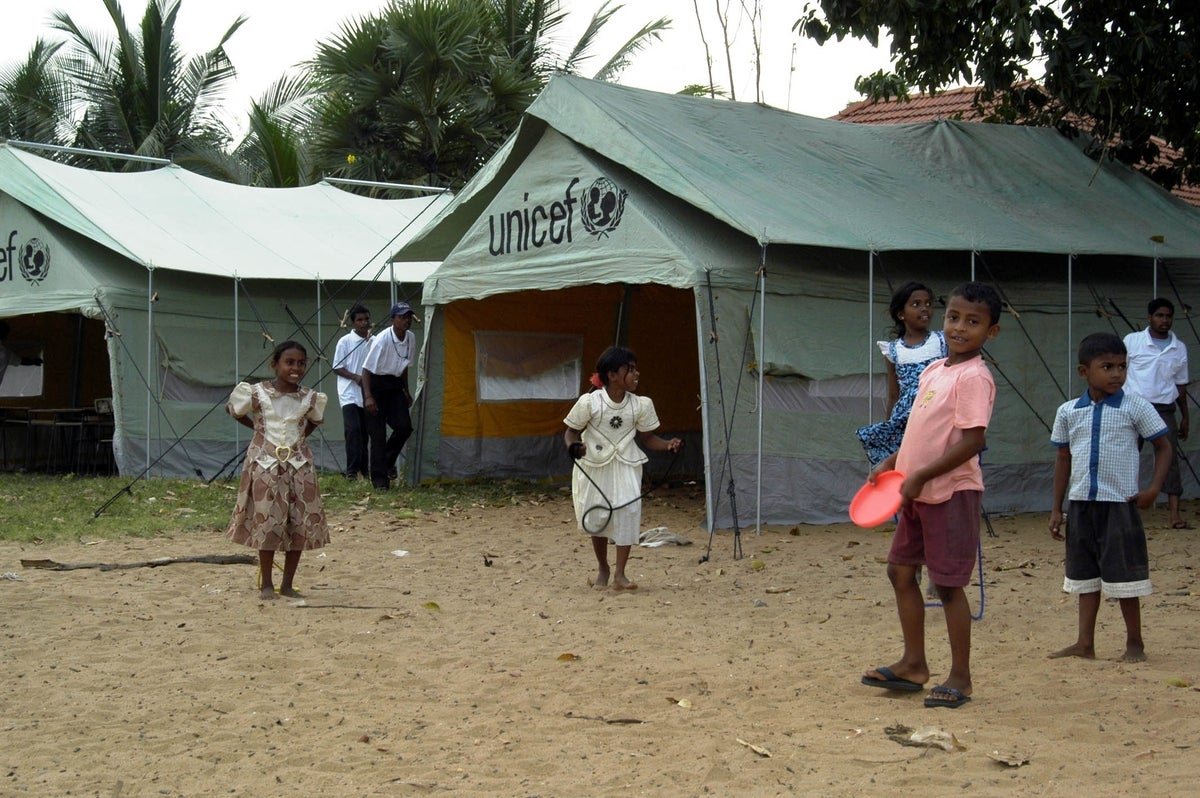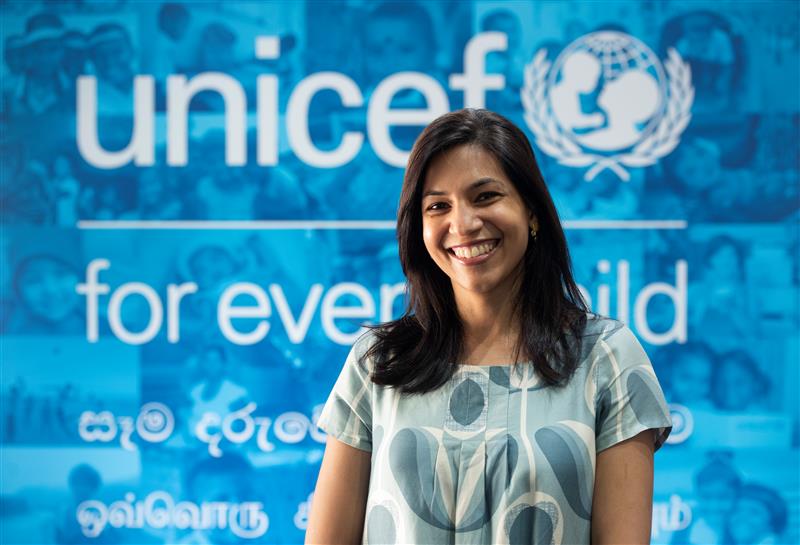The Indian Ocean tsunami: 20 years on
Lara Perera from UNICEF in Sri Lanka reflects on UNICEF's response to the 2004 disaster.

My name is Lara Perera, and I have been working in UNICEF Sri Lanka since 2005. I joined UNICEF soon after the tsunami hit Sri Lanka, where over 35,000 people were killed and up to 1 million people displaced, adding to the already approximately 350,000 displaced people due to the civil conflict.
At the time, UNICEF supported the government of Sri Lanka in rapidly responding to the tremendous needs of the tsunami-affected population. Immediately after the disaster, UNICEF staff mobilised for action with clear priorities: to ensure the survival of affected populations, to alleviate the immediate suffering of children, particularly those who had lost their parents, and to address the most pressing humanitarian needs.
Based on UNICEF’s Core Commitments for Children, UNICEF focused on the provision of safe drinking water, sanitation, and hygiene, the continuation of essential health and nutrition services, the restoration of child-learning opportunities, and the protection of and psychosocial support for children and women. Responding to a disaster of this scale was made more challenging in Sri Lanka due to the fragile post-conflict situation in the north and east.

In its response, UNICEF’s initial assistance focused on procuring and delivering essential supplies to meet the needs of the displaced population. UNICEF also ensured that all separated and unaccompanied children were rapidly registered and placed with extended families as soon as possible. Priority was also given to facilitating children’s return to school by supporting the construction of temporary classrooms, restoring damaged schools and providing school supplies and equipment.
UNICEF also helped the government restore health services, including vaccination programs, through the reconstruction and equipping of health facilities, which helped prevent any major outbreak of diseases. For those who lost their homes and were forced to live in temporary shelters, UNICEF provided access to water and sanitation facilities.
After the tsunami, UNICEF strengthened sector coordination mechanisms and partnerships and assisted the government in coordinating the emergency response at the national and district levels across the education, child protection, psychosocial care, and water, sanitation and hygiene (WASH) sectors.

Despite the incredibly devastating impacts of the tsunami, I was really touched to see and hear stories of families and communities coming together to help each other and the incredible spirit of giving by those who sometimes had very little to give in the first place. This generosity crossed religious, ethnic, and geographical boundaries and helped erode some of the divisions that had been solidified by years of internal civil conflict.
Children, in particular, showed a remarkable ability to bounce back. Within a few months following the tsunami, most children returned to school and continued their learning, sometimes under the shade of a tree because their school had been destroyed. Children could be seen laughing and playing together in areas where child-friendly spaces were created, highlighting the importance of play and resilience for their recovery.
Being part of UNICEF during its extensive response to the tsunami shaped me personally and professionally. The ability to help in some small way impacted me greatly and made me truly appreciate how UNICEF is well placed to mobilise significant resources to help those in need at the right time and in the right way, and importantly - at scale. The experiences I gained in responding to the tsunami emergency also helped me better respond to the needs of those affected during the years of conflict that followed.

Vulnerable communities in Sri Lanka continue to face challenges. Sri Lanka is a beautiful island that has had to withstand many tragic events, from almost 30 years of conflict, a tsunami, a terrorist attack on Easter Sunday in 2019, the COVID-19 pandemic and now, most recently, an economic crisis that still persists.
In all these years of working with UNICEF, I have seen the government’s systems get stronger, more robust policies and programs introduced and capacities to provide quality services enhanced. However, there is so much more work to be done in Sri Lanka for the country to fully recover and achieve its sustainable development goal targets so that its people could truly enjoy all their rights.
UNICEF could not have responded so quickly nor sustained its support to the country over the years of recovery if not for the valuable contributions of all its donors. The recovery efforts went towards building back better and rebuilding their lives but also giving them a sense of hope for the future. This hope is critical in further strengthening their resilience in a country that continued to be ravaged by conflict for many years after the tsunami.
UNICEF could not have been there for these children if you had not been there for us, and for this, we are extremely grateful.
- Lara Perera, UNICEF, Sri Lanka


